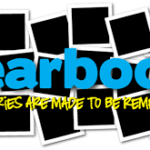 If you could ask a thousand people right now to list five things that they wish they could achieve in this lifetime, it wouldn’t surprise us in the least if one of the things that they mentioned was financial independence. That’s because, in a world that is filled with so much debt and credit issues, by knowing how to make savvy money choices, it can cause one’s life to be lot easier while granting them access to so much of what they desire to have.
If you could ask a thousand people right now to list five things that they wish they could achieve in this lifetime, it wouldn’t surprise us in the least if one of the things that they mentioned was financial independence. That’s because, in a world that is filled with so much debt and credit issues, by knowing how to make savvy money choices, it can cause one’s life to be lot easier while granting them access to so much of what they desire to have.
If you happen to be someone who is currently on the path towards achieving financial independence yourself and you’d like a few tips on the kinds of steps that you should take in order to reach that goal, we have five proven ones for you below:
Don’t “get a job”. Start a career. There are a lot of people who work at low-paying, dead-end jobs who will tell you that they would’ve never thought their life would turn out that way. Years ago, they thought to themselves “I just need to get a job” and now here they are, still at the same place of employment, with a very limited possibility for promotion. The way to avoid this trap is to plan for a career. Think about the kind of professional you want to be. Go to college. Get an internship. Find a mentor. The more educated you are, the easier it will be to get a good paying position; one that will provide much room for lots of growth.
Set a budget. People make a lot of money mistakes, simply by taking the “I’ll just wing it” approach to their spending. It’s really easy to look up and realize that you spent hundreds of dollars on food, entertainment and clothes that you don’t really need. You can avoid this by establishing a monthly budget where bills and a savings account comes first. This brings us to the next point.
Save some money. According to many financial experts, everyone needs to put aside 10 percent of each paycheck into a savings account and also have at least a couple of thousand dollars in an emergency account. With the savings account, you can start your retirement fund and thanks to an emergency account, you won’t have to rely on things like payday loans and credit cards to pay for an emergency car or house repair. (Or medical bills.)
Use cash. Recently, the Today Show published a feature stating that people are far more willing to discuss their salaries and weight than their credit card debt. That might be due to the fact that the average amount of credit card debt, per household, within the United States is currently around $15,000. One way to avoid this is to live by the “If I can’t purchase it with cash, then I don’t need it” philosophy. You might have to wait to get a few things you want, but at least you won’t have to worry about things like monthly payments and interest by buying it outright.
Educate yourself. Thanks to magazines like Forbes, websites like SmartAsset and financial experts such as Dave Ramsey, we have a wealth of information at our disposal that can teach us all that we have to be financially independent. So, whether you have questions about retirement, investments or anything else that can help you to be a more responsible person when it comes to your money, don’t hesitate to educate yourself. Knowledge is not only powerful but it has the potential to make you financially wealthy (or at least comfortable and out of debt) too.




2 Comments
Unfortunately, unsecured debts such as credit card bills and medical bills are becoming a greater problem for many people in this country. It simply takes a quick online search to see the thousands of debt relief companies that have popped up in the last decade. In the past few years, many people were able to use their rising home values to pay down their debts through refinancing, now however, the situation has changed and people are searching for alternative debt relief services to consolidate credit card debt .
4. You must carry a balance on your credit cards to build a credit history. You must use your credit cards to build a credit history, but that does not mean you must carry an unpaid balance. In fact, your best strategy is to use your credit cards and pay off the bill in full each month so you keep your overall debt-to-credit limit low.